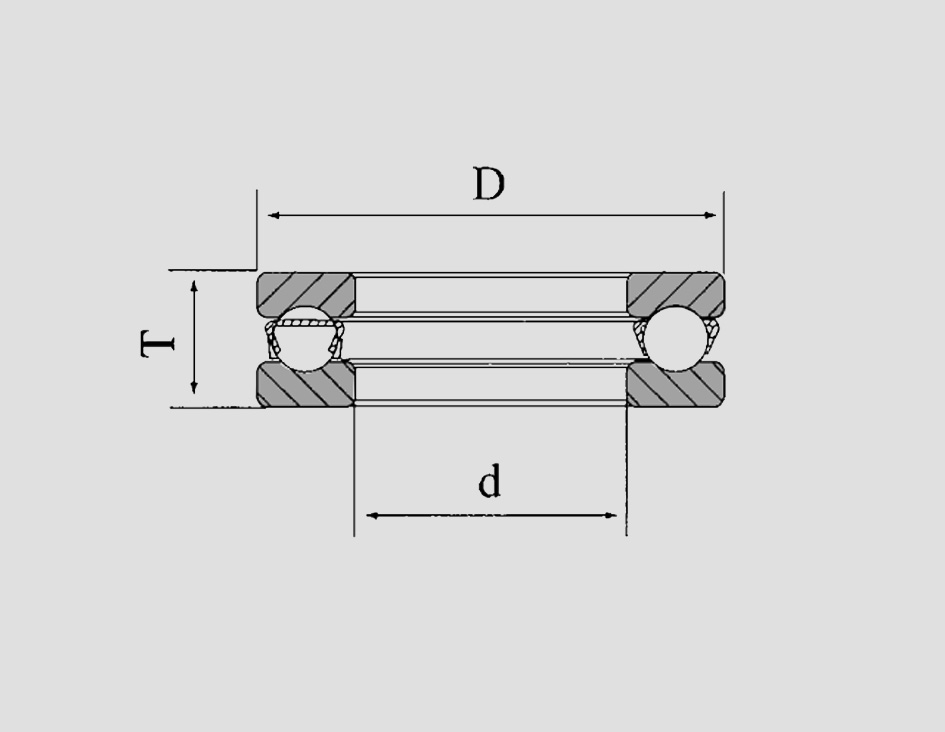
Nov . 28, 2024 06:36 Back to list
Dimensions and Specifications of 6206 Bearing for Engineering Applications
Understanding the Dimensions and Specifications of 6206 Bearings
Bearings play a crucial role in numerous mechanical applications, providing support and reducing friction between moving parts. Among the various types of bearings available, the 6206 bearing stands out due to its versatility and wide usage in different industries. This article will explore the dimensions, specifications, and applications of the 6206 bearing, allowing for a better understanding of its importance in machinery operation.
What is a 6206 Bearing?
The 6206 bearing is an arbitrary, single-row deep groove ball bearing that is commonly used in various machinery and equipment. It features an open design, which allows for easy access to lubrication and makes it suitable for various applications where dust and particulate matter are not a concern. Alternatively, it is available in sealed or shielded designs to prevent dirt ingress and retain lubrication.
Dimensions of 6206 Bearings
The dimensions of a 6206 bearing are standardized according to the ISO (International Organization for Standardization) specifications, ensuring compatibility and interchangeability across different manufacturers. The following are the key dimensions of a 6206 bearing
- Inner Diameter (d) 30 mm - Outer Diameter (D) 62 mm - Width (B) 16 mm
These measurements define the physical size of the bearing, allowing it to fit into a corresponding housing or component with specific dimensional requirements. The deep groove design facilitates easy handling of radial and axial loads, making it a versatile choice for various configurations.
Load Ratings and Specifications
In addition to physical dimensions, the load ratings of bearings are critical for their selection in specific applications. For the 6206 bearing, the dynamic load rating (C) and the static load rating (C0) are essential parameters to consider
- Dynamic Load Rating (C) Approximately 15,000 N - Static Load Rating (C0) Approximately 8,500 N
6206 bearing dimensions

These ratings indicate the bearing’s capacity to withstand forces while in operation (dynamic) and when stationary (static). Selecting a bearing with appropriate load ratings is essential to ensure longevity and reliability in its intended application.
Material and Construction
6206 bearings are typically constructed from high-carbon chromium steel, which provides significant strength and durability to withstand the stresses of operation. The steel is often treated to enhance its hardness and wear resistance. Other materials, such as stainless steel or ceramic, may be used in specific applications where corrosion resistance or reduced weight is crucial.
Applications of the 6206 Bearing
Due to its robust design and favorable load ratings, the 6206 bearing is utilized in a wide range of applications across various industries, including
1. Automotive Used in wheels, electric motors, and pumps. 2. Industrial Machinery Applied in conveyor systems, printing presses, and packaging equipment. 3. Household Appliances Commonly found in fans, washing machines, and refrigerators. 4. Electric Motors Essential for reducing friction in various motor designs.
The broad applicability of the 6206 bearing highlights its significance in manufacturing and production processes, contributing to the efficiency and performance of machinery.
Conclusion
The 6206 bearing is a versatile, reliable component widely utilized in many sectors due to its standardized dimensions, favorable load ratings, and robust construction. Understanding its specifications and applications enables engineers and technicians to select the right bearing for their specific needs, ultimately enhancing the performance and lifespan of mechanical systems.
With the advancement of technology and continuous innovations in bearing design, it is essential to stay informed about the latest materials and specifications to ensure optimal performance in various applications. The 6206 bearing remains a critical element in the machinery landscape, demonstrating the importance of these tiny components in the functioning of larger systems.
Latest news
-
Spherical Roller Bearings Applications: Heavy Duty, Self-Aligning
NewsAug.30,2025
-
Premium Deep Groove Ball Bearings | High Speed & Reliability
NewsAug.29,2025
-
Durable Scaffolding Clamps - Secure & Reliable Tube Connectors
NewsAug.28,2025
-
Common Failures in Thrust Ball Bearings and Solutions
NewsAug.22,2025
-
How Tapered Roller Bearings Can Take Shock Loads
NewsAug.22,2025
-
Angular Bearings in High-Precision Spindles
NewsAug.22,2025
